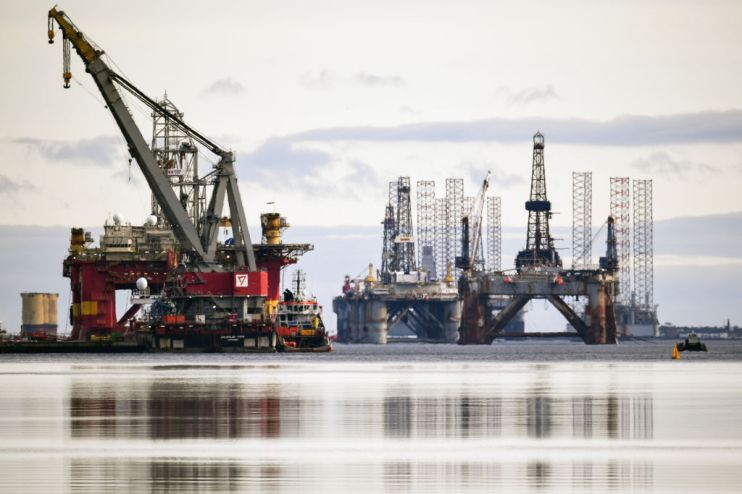North Sea round-up: Harbour Energy announces cash bonanza while Shell keeps Cambo stake

Harbour Energy (Harbour), the biggest oil and gas producer in the UK North Sea, has revealed it should generate up to $1.7bn (£1.29bn) in spare cash this year – if prices remain high.
Shares in the FTSE 250 company are up 4.34 per cent at close of play, after Harbour unveiled a sharp swing to profit driven by rapid revenue growth and lower impairment charges.
The oil and gas firm – formed last year from a merger of Premier Oil PLC and Chrysaor Holdings – posted a pretax profit of $315m in its latest full-year results, a sharp turnaround from its $978m in 2020.
Harbour’s success has been driven by a 48 per cent increase in revenue to $3.62bn from $2.44bn – powered by higher realised gas prices and increased production volumes for both liquids and gas.
Meanwhile, impairment charges were down from $644m to $117m – mostly concerning property, plants and equipment.
Over the year, it has reported successful domestic drilling at multiple sites including J-Area, Elgin Franklin and AELE, Beryl.
Looking ahead, Harbour Energy expects production for 2022 to come between 195,000 and 210,000 barrels per day, reflecting a 10-20 per cent rise from 2021.
Chief Executive Linda Cook said: “With our scale, our commitment to producing safely and responsibly, our robust balance sheet and track record of successful M&A, I believe we are well placed to deliver value creation, growth and shareholder returns,” said
Harbour has also declared a dividend of 11 cents per share, having paid out nothing in 2020.
Its rebounding success has prompted Ed Miliband, Labour’s shadow climate change secretary, to renew calls for a windfall tax.
He argued this was “more evidence of soaring profits in the oil and gas sector as families are hit by massive price rises” and “more evidence of why we need a windfall tax: the right and fair choice”.
Amid the current energy crisis which has seen oil and gas prices spike, Labour has pushed for a one-off £1.2bn windfall tax on fossil fuel firms operating in the North Sea.
This would be paid by a year-long 10 per cent hike in corporation tax, as part of a wider £6.6bn proposal to shave £200 off household energy bills.
BP and Shell faced similar calls from the opposition earlier this year, when both energy giants unveiled bumper profits and big paydays for their stakeholders.
Never say never: Cambo might benefit from government’s North Sea embrace
Cambo could be dealt a reprieve, with Downing Street reviving its interest in North Sea oil and gas developments following the deepening energy crisis and Russia’s invasion of Ukraine.
Business Secretary Kwasi Kwarteng has called for further North Sea oil and gas exploration, while Prime Minister Boris Johnson has held a roundtable with energy leaders to discuss options to speed up domestic developments.
Shell revealed in its annual report last week that it is still working with Siccar Point Energy and the UK Government to “map out the next steps” of the Cambo project – which could provide up to 800m barrels of oil.
It said: “Shell continues to work with its co-venturer and the UK government to map out the next steps on Cambo.”
When Shell pulled out last December, it said the economic case for Cambo was “not strong enough”.
The operator, Siccar Point Energy – which holds the remaining 70 per cent stake – then pressed pause on the entire project.
This was considered a huge setback for the project, and domestic exploration, but Shell has since kept hold of its 30 per cent stake in the project – even with the licence set to expire later this month.
This has raised the prospect of its licence being extended by the Oil and Gas Authority.